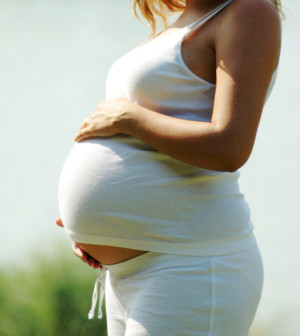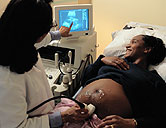- 8 Ways to Increase Dopamine Naturally
- 7 Best Breads for Maintaining Stable Blood Sugar
- Gelatin vs. Collagen: Which is Best for Skin, Nails, and Joints?
- The Long-Term Effects of Daily Turmeric Supplements on Liver Health
- Could Your Grocery Store Meat Be Causing Recurring UTIs?
- Are You Making This Expensive Thermostat Error This Winter?
- Recognizing the Signs of Hypothyroidism
- 10 Strategies to Overcome Insomnia
- Could Artificial Sweeteners Be Aging the Brain Faster?
- Techniques for Soothing Your Nervous System
Exposure To Common Chemical May Raise Risk of Preemie Delivery: Study


Pregnant women who are exposed to common chemicals known as phthalates may be at greater risk for delivering prematurely, a new study suggests.
Phthalates can be found in a variety of common products such as lotions, perfumes and deodorants, the researchers said. People can also be exposed to the chemicals through tainted food and water.
The research team believes steps should be taken to reduce pregnant women’s exposure to phthalates, which have been tied to disrupted thyroid hormone levels, breast cancer and the uterine disorder known as endometriosis.
The study, led by Kelly Ferguson of the University of Michigan School of Public Health, involved 130 women who had a preterm delivery (before 37 weeks of pregnancy), as well as 352 women who did not delivery prematurely. The researchers used urine samples taken during pregnancy to measure each woman’s level of phthalate-linked compounds or “metabolites.”
The study, published online Nov. 18 in the journal JAMA Pediatrics, found that upswings in some phthalate metabolite concentrations in urine during pregnancy were tied to a greater risk for preterm birth.
The finding “solidifies prior laboratory and epidemiologic [population-based] evidence,” Ferguson’s team wrote. They believe the results apply to women elsewhere and “provide strong support for taking action in the prevention or reduction of phthalate exposure during pregnancy.”
While the study found an association between higher phthalate levels and early delivery, it couldn’t prove a cause-and-effect link. But in a journal commentary on the study, Shanna Swan of the Icahn School of Medicine at Mount Sinai, in New York City, said gathering more evidence of a phthalate-premature delivery connection is important.
That evidence would ideally come from a study looking at levels of certain compounds signaling phthalate exposures, as well as inflammation of the uterus, and linking both to a higher risk for spontaneous preterm delivery, Swan said.
However, she believes that Ferguson and her colleagues “have contributed the first robust study suggesting that phthalates, pervasive in the environment of prenatal women, may be important contributors to the unknown and other causes of preterm delivery.”
More information
The U.S. Centers for Disease Control and Prevention provides more information on phthalates.
Source: HealthDay
Copyright © 2026 HealthDay. All rights reserved.










